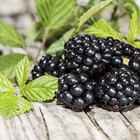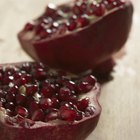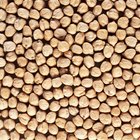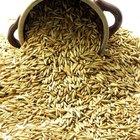
There is a difference between unhealthy processed foods and healthy processed foods. Freezing is a healthy way to process freshly picked fruit. Freezing does not remove the nutrients. It preserves the fiber and other nutrients in the fruit. Frozen raspberries have nearly the same amount of fiber, minerals and vitamins as fresh fruit, sometimes even more.
Freshly Picked
Raspberries are hand-picked during harvest. Then they are taken to a packing plant that is located on the farm or to an off-site packing company where the fresh raspberries are sorted, packaged, labeled and shipped to grocery stores. If the fresh raspberries are not stored, handled or shipped properly, some of the fiber and other nutrients may be lost. When you shop for fresh raspberries or other fresh fruit, make sure your markets are getting fresh raspberries from your local farmers to be sure you get the most nutrients from fresh fruit.
Freezing Process
Raspberries are hand-picked at harvest and those destined for the freezer are processed immediately. The nutritional value in frozen raspberries is probably higher than fresh raspberries imported from other countries, or even other states. By the time fresh raspberries from far away places reach your table, some of the nutrients may be lost.
Freezer Life
Fresh raspberries are good but sometimes frozen is just the better choice all around. Fresh raspberries may last about one week. A large pack of frozen raspberries will last for about a year. That is true with most frozen fruit. You have one year from the purchase date to eat those frozen raspberries. Citrus fruit has a shorter freezer life. It needs to be eaten within 4 to 6 months. One package of fresh raspberries is more expensive than a bag of frozen raspberries, so you get more fruit for about the same price. You can also buy frozen raspberries as a mixture of frozen berries.
Fiber Content
There is not much difference in the amount of fiber between fresh and frozen raspberries. You will get about 8 g of dietary fiber in one cup of fresh raspberries and 11 g of dietary fiber in one cup of frozen raspberries. Either one, fresh or frozen raspberries will add fiber to your diet, in addition to nutrients and antioxidants. Frozen raspberries can be more economical than fresh especially if they are out of season or imported. You can thaw frozen raspberries and put them on top of your ice cream, yogurt and cereals and in smoothies. Use frozen raspberries to make a fruit sauce to put on ice cream, yogurt or whole wheat pancakes and waffles.
Related Articles

How to Freeze Raspberries
How Long Can You Freeze Fresh ...

How to Show a Guy You Are Moving On
Is There a Loss of Nutritional Value in ...

How Are Strawberries Processed?

Fiber in Blackberries

What Fruit Has the Most Fiber?

How to Keep Pomegranate Fresh

How to Make Fresh Strawberry Frosting ...

How to Tell When Tortellini Is Bad

How to Freeze Empanadas

How Fast Does Cooked Spaghetti Squash ...
Can You Freeze Capers?

How to Know When Sprouted Garbanzo ...

Fresh Vs. Canned Foods
How to Freeze a Fruitcake

How to Store Oat Bran

How to Prevent Bananas From Browning ...

How to Cope When Your Ex-Boyfriend Has ...

Can Fresh Clams Be Frozen?
References
Writer Bio
Elizabeth DiDio began her career in 1991. She held research positions at the University of California, Davis, Lawrence Berkeley Laboratory, and Kaiser Permanente while pursuing her science degree. She has written for the "UC AgHealth News" and co-authored articles published in the "Journal of Nutrition" and other scientific publications.
Photo Credits
raspberries image by Freeze Frame Photography from Fotolia.com